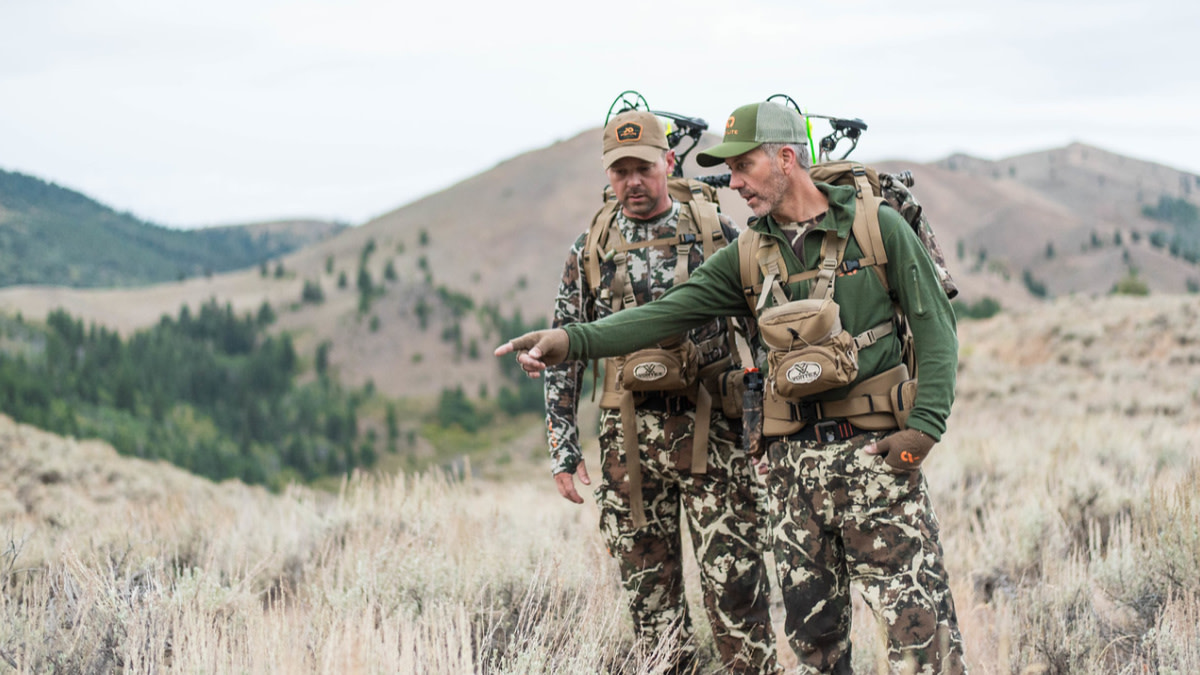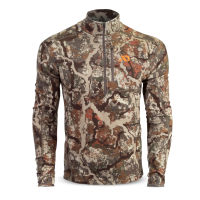
One of the biggest barriers to entry for new hunters, especially adult-onset hunters, is finding someone to teach them the ropes. Based on the number of emails we get on the subject, it’s an intimidating process.
Compared to a new hunter without anyone to learn from, I had it pretty easy. My father and my best friend’s father were my earliest and most important hunting mentors. I learned a lot from both of them. They sacrificed their own hunting time to teach me everything from marksmanship to animal behavior.
Most of the MeatEater crew followed a similar path, with the common theme being that family members taught us valuable lessons in woodsmanship. Later in life when we branched out to hunt new species in new areas, we were able to lean on friends to help us out.
Luckily for new hunters without those connections, there are plenty of ways to gain knowledge and find a hunting mentor. It just requires a little work.
“It’s no secret that a good mentor will accelerate the learning curve for just about any new endeavor,” said Ryan Callaghan, MeatEater conservation director. “Just like gaining any kind of knowledge, you just have to extend yourself to access it.”
Books
You can find books about how to hunt all species of small game and big game written by skilled hunters with decades of experience. Think of the authors of these books as pseudo-mentors that you can return to again and again for information.
My bookshelves are lined with titles that made me a better elk hunter. I trained my bird dog using one short, simple book. I’ve picked up countless tips on seasonal mule deer behavior from a book that has nothing to do with hunting.
If you’re new to hunting, books need to be part of your education. In the age of instant gratification provided by YouTube and Google, novice hunters would be wise to remember that books still provide an unparalleled level of knowledge and detail. You simply can’t learn everything you need to know about hunting by watching 5-minute online videos.
If you’re looking for book recommendations, we’ve even created a list for you.
State Programs
Not only can you learn about stuff like public access points and game surveys on state game management websites, you can also find information on programs created specifically for new hunters.
These outreach programs typically pair up a hunter or small group of hunters with a mentor or hunting club. The instructors may be fish and game employees or volunteers that go through mentorship training. Through these state-sponsored programs, mentees will learn safe gun handling practices, what gear to use, where to find game, field dressing techniques and more.
Some novice adults don’t take advantage of these programs because they believe they are tailored only to youth hunters. While that may be true in some cases, there are plenty of opportunities for adults with little or no hunting experience. In fact, with the rising number of adult-onset hunters, more and more fish and game agencies are developing mentorship programs for that demographic.
Hop on your state’s game website or stop by a local office to learn more. You may also find seminars aimed at teaching new hunters everything from wild game butchering to turkey calling. These classes are a great place to meet other new hunters that you can pair up with to share knowledge.
Hunter-Conservation Groups
One of the best ways to find a hunting mentor is to join a hunter-based conservation group. National nonprofits like the Rocky Mountain Elk Foundation, Backcountry Hunters & Anglers and The National Wild Turkey Federation have hundreds of thousands of members across the country. Many of these folks are dedicated to protecting our hunting privileges, growing support for wildlife conservation and the preservation of our public lands.
They’re also dedicated to bringing in new members who want the same things, and there’s no better place to find a hunting mentor than among like-minded people with a common goal. These national conservation groups all have local chapters where you’ll be able to network and find mentors.
You’re even more likely to find an enthusiastic mentor if you’re willing to volunteer your time. Consider helping out at chapter fundraising banquets, public lands clean-ups and habitat restoration projects. You may find that a little goodwill and elbow grease opens the door to picking someone’s brain or tagging along on a hunt.
For instance, who would know where to find upland birds in your area? Chatting with a member of the local Pheasants Forever chapter at a fundraiser is a good start. If you’re interested in learning about wilderness hunting, volunteer on a few projects with Backcountry Hunters & Anglers. You’ll likely pick up some tips while sharing beers after a hard day’s work.
Local Clubs
Many communities have local sportsmen’s clubs. Their facilities often have rifle and archery ranges as well as trap or skeet shooting areas. If you live in a community with one of these clubs, it’s a good idea to join. It’ll likely cost you a small annual membership fee and some mandatory volunteer work hours, but the payoff is well worth the small investment of time and money.
Ryan Callaghan explains, “Many of these folks have been members of these communities and clubs for decades and they are ready to pass the torch. They want to know the future of their hunting spots is in good hands. One of the many rewards for your work, membership and volunteer hours may very well be a hunting mentor.”
Going It Alone
Whether out of simple trepidation, a lack of expertise or the possibility of failure, many beginners simply avoid going into the woods alone. But you shouldn’t underestimate the value of hunting on your own, even if you’re a rookie. Sure, you’ll make a few mistakes, but every minute you’re out in the field is time well spent. The knowledge and experience you’ll gain will build the confidence you might not find if you rely solely on someone else’s wisdom.
There’s something to be said for learning by doing. When I moved from Pennsylvania to Colorado 20 years ago, I was already a dedicated fly fisherman and hunter. Catching trout on a fly rod out West didn’t require much of an adjustment for me. If anything, it was easier than it was back East.
Western big game hunting, on the other hand, was completely different than anything I’d experienced in Pennsylvania. I had no idea how to hunt mule deer or elk and I didn’t have any mentors to lean on, but I didn’t let that stop me. I spent a lot of time alone hiking around in the mountains, studying deer and elk before I figured out what the hell I was doing. After a couple seasons of working hard and learning as much as I could, I was filling the freezer on a regular basis.
Pay It Forward
Overall, American hunting participation has been on a steady decline. As our population becomes more urbanized and older hunters age out of the sport, our numbers are taking a hit. For the sake of wildlife conservation and the preservation of the hunting lifestyle, we need to bring more hunters into the fold.
To combat this trend, state agencies and nonprofits have organized around a directive called R3: recruitment of new hunters, retention of current hunters and reactivation of former hunters. You can help accomplish this goal by being part of the hunter recruitment process.
If someone took the time to mentor you, do the same for someone else. Take a friend, a family member or a neighbor’s kid hunting. Volunteer to be a hunting mentor for your state fish and game agency. All of us at MeatEater have mentored new hunters, and every time it has been a rewarding experience we look forward to doing again.







